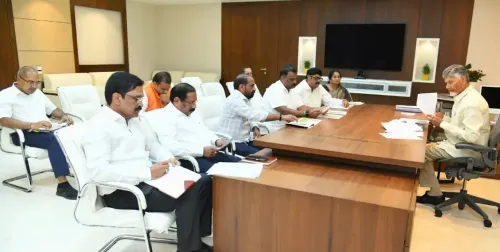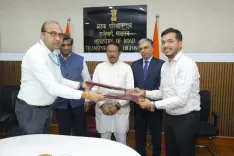What Does FM Sitharaman Say About GST for Apartment Associations?

Synopsis
Key Takeaways
- Apartment associations must register for GST if turnover exceeds Rs 20 lakh.
- GST only applies when maintenance charges exceed Rs 7,500 per month per member.
- Residents are not liable for GST payments.
- Taxpayers can opt for reduced penalties on unpaid taxes if settled promptly.
- Awareness programs are in place to assist taxpayers with compliance.
New Delhi, July 28 (NationPress) Finance Minister Nirmala Sitharaman addressed the Parliament on Monday, emphasizing that apartment associations must register under GST if their total turnover surpasses Rs 20 lakh (or Rs 10 lakh for special category states) within a financial year. Furthermore, these associations are only liable to pay GST when the monthly maintenance fee exceeds Rs 7,500 per member.
The Finance Minister elaborated that associations with monthly maintenance charges at or below Rs 7,500 or those whose turnover remains below the stipulated limit are not obligated to register under GST.
According to her statement, residents of apartments are exempt from paying GST. It is the apartment associations that must pay since they provide the services, she noted in a written response in the Lok Sabha.
Initially, the services rendered by an apartment association to its resident members were exempt from GST for maintenance charges up to Rs 5,000 per month. However, this exemption limit was raised to Rs 7,500 per month per member following the GST Council's recommendations during its 25th meeting on January 18, 2018, the Finance Minister stated.
Services offered by an apartment association to its members, where maintenance fees exceed Rs 7,500, are taxable at an 18 percent rate as per the GST Council's recommendations.
This Rs 7,500 threshold was also set based on the GST Council's advice during the same 25th meeting, where the limit was raised from Rs 5,000 per person per member.
Sitharaman further mentioned that taxpayers who have not settled their dues under the GST Act can choose to pay either no penalty or a reduced penalty, provided they settle the owed tax within a designated timeframe.
She also indicated that events like Taxpayer Samvad, workshops, and awareness initiatives are routinely organized for the purpose of disseminating information through GST facilitation centers. These programs aim to assist taxpayers in accurately assessing their tax obligations. Moreover, there is no need for any formal letter from residents or apartment associations concerning their GST status under the CGST law.









